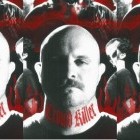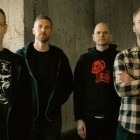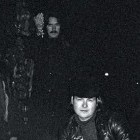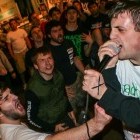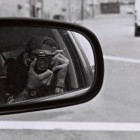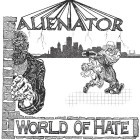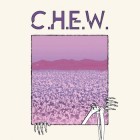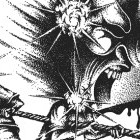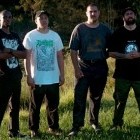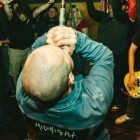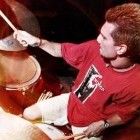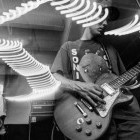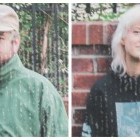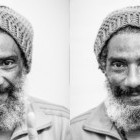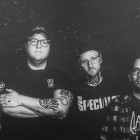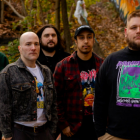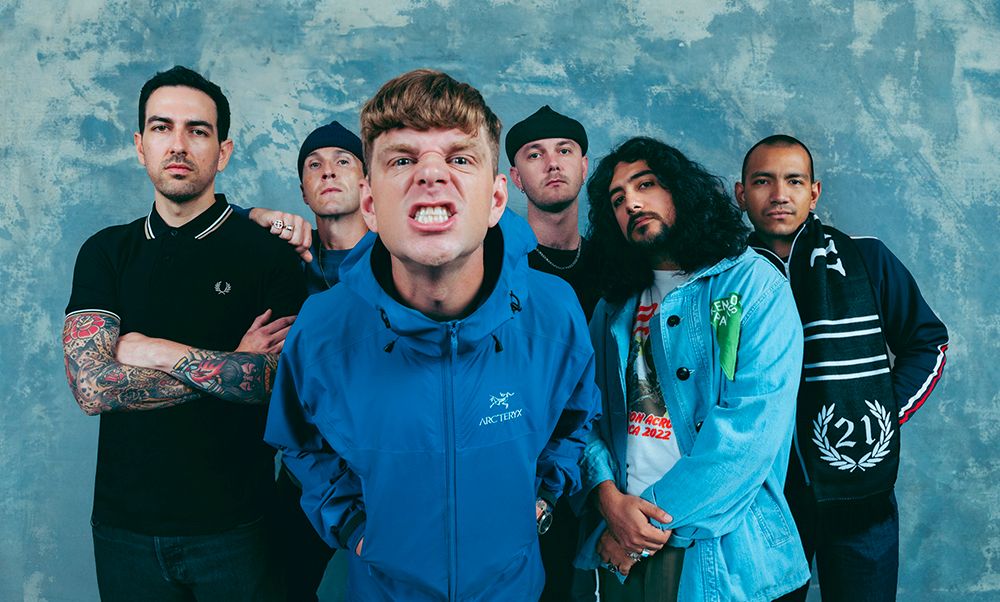
Trying to crystalize what Spiritual Cramp is musicially in a single sentence would make your head explode. The California band's songwriting encompasses elements of everything from new wave to classic punk to reggae to '90s alt.rock. Whatever you want to classify Spiritual Cramp is doing, it all swings and gets stuck in your head pretty instantly.
With deep ties to the NorCal hardcore scene, the group's recording debut came via a 7" on the straight edge label React! Records in 2017, and they have been touring and recording consistently ever since. It takes a lot for a band playing Buzzcocks-like hooks to win over a sweaty room of hardcore kids at a DIY spot, but I've witnessed Spiritual Cramp do it on more than one occasion.
Signed by famed A&R executive Dave Rath to the new Blue Grape Music label, Spiritual Cramp recently released their self-titled debut album. The sessions were co-produced by vocalist Michael Bingham and bassist Michael Fenton, the album includes additional production from Carlos de la Garza (Paramore, M83), who also mixed the collection.
I love the record and recently had a conversation with Spiritual Cramp frontman Michael Bingham about the experience, how he's been dealing with the band's higher profile-related responsibilites, and how hardcore has helped steer his direction through it all.
You sent me an advance download link of the album a few months back and the first thing that struck me about it was how effortlessly catchy the material sounds. Spiritual Cramp has always had hooks but this is on another level. It’s radio-ready in every way. Was this aspect an aspect of your sound you couldn’t fully explore in the past because of time/budget constraints in the studio? The vocal layering and mix in particular is stunning.
Man, thank you so much. I appreciate the fact that it comes across as effortless. It is not effortless haha. We spent a lot of time writing these songs so it’s good to hear the intended result is conveyed to you and that it feels natural.
There’s two answers to this question: yes and no. For our first two 7”s as well as the Television compilation 12” we intentionally kept the production small. We wanted the band to sound like it was something that was inspired by the '70s and '80s and with that comes certain snare sounds. It's small guitar amps turned up to 10 and recorded. It’s intentionally small. It matched how we approached the band. A small punk band.
We knew when we started doing this LP we wanted it to be different from that. We wanted our whole approach to the band to level up. We wanted the songwriting and content to be cohesive with our previous output, but we wanted it to be a high-fidelity album. Now we’re going to be a big punk band. We’re going to be audible. We’re going to take up the space.
It wasn’t time to spend the time and money before. We thought it was time now.
There’s an assured level of both attitude and melody to your vocals on this album. Since you co-produced the album, how did you handle the tracking process when it came time to record your vocals. I know it can be a challenge to be truly objective about performances when critiquing your own work.
Again, thank you! I recorded all of the vocals to the unmixed songs at my house. I drove my partner insane. Weeks of me pacing around the house screaming into a SM7B in my studio.
I would finish a song and send it to my writing partner (Mike F) and members of the band when we needed more feedback. They would say “this is good” or “you can do better” and I’d re-do them or adjust parts.
Our A&R (Dave Rath) was also a huge part of it. When I finished “Talkin' on the Internet” I sent it to him and he came back to me and told me I had to do it again and make it simpler. He’s got a good ear for hooks and he pushed me to simplify some of my songs. I have a tendency to over explain myself. It happens when I make art too. He helped smooth out the edges.
The same goes for Carlos (De La Garza) who helped produce. He would say the same type of thing. He would say “that’s cool but you don’t need all this nonsense surrounding it - it’s a chorus it needs to be simple”.
It was a journey but in the end it made me a better songwriter. I had a lot of very talented people helping me.
It’s a tough album to throw into a single genre bucket. I hear elements of everything from classic new wave to ska to power pop in these songs. How do you describe Spiritual Cramp when you’re in conversation with someone who hasn’t heard the band yet? How do you feel about genre tags in general? Should we stop worrying about this kind of thing?
It depends who I’m talking to. Generally I tell people at a family event “it sounds like the clash” because that’s an easy one but there’s so many things we’re pulling from. Street punk bands. Reggae music. Old '70s rock and roll. '60s soul. It’s all in there. It just depends on who I’m talking to how I describe it. In the end, we’re just a punk band. It’s got elements of tons of other stuff but it’s punk.
I think genre tags are great. It helps people find a context for an identity when they need it. When I was younger I needed punk. I needed to know what I was listening to and I needed to know it matched with my new found identity. I needed to be a punk rocker. I still do.
As you get older you realize music is just music but when you’re finding an identity in it, it’s important you can attach it to words because words help you define yourself and your identity and it’s important to have an identity in order to feel seen.
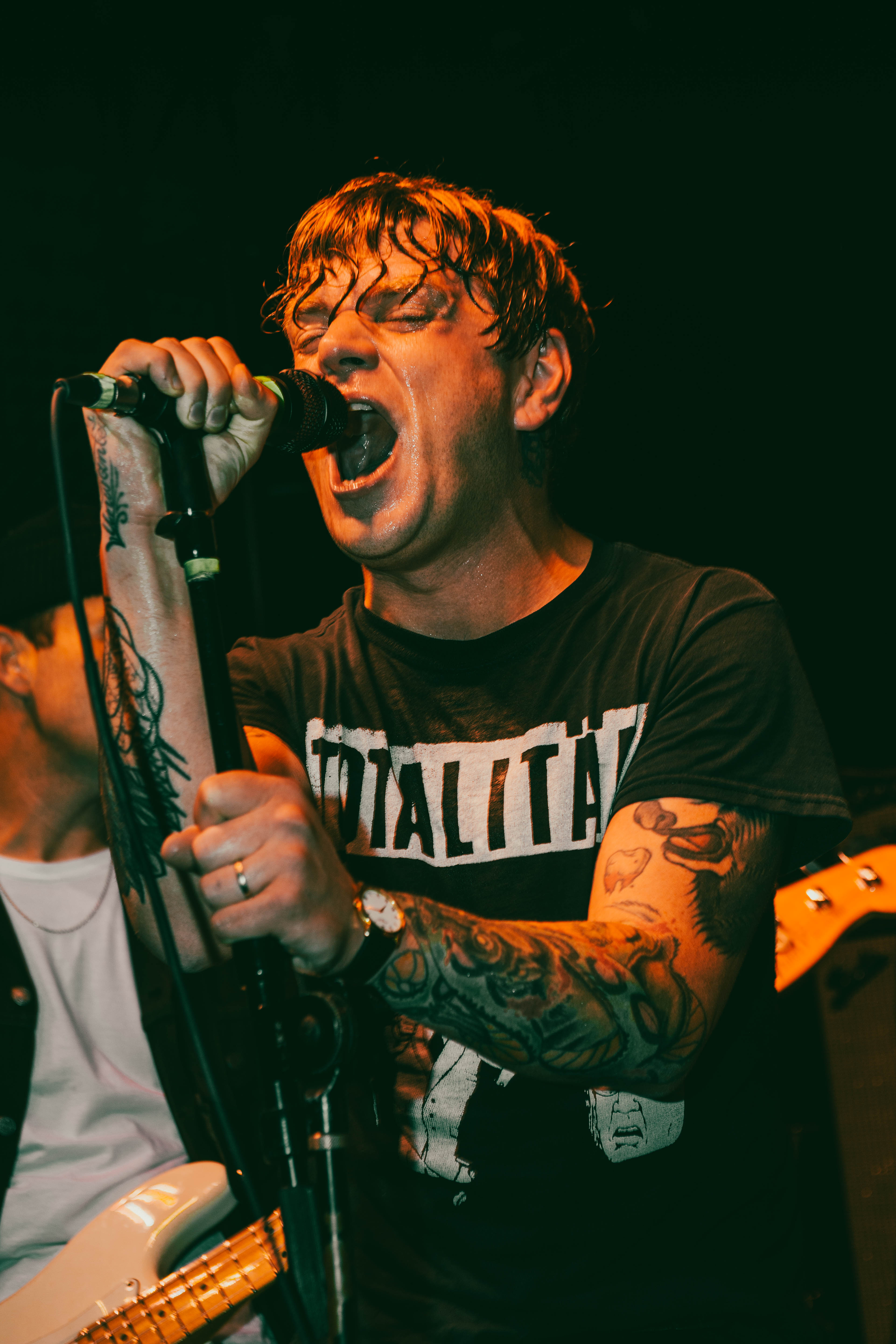
Staying on this subject a bit, I’ve seen Spiritual Cramp play on some very diverse live bills. Something about that aspect of what you’re doing that excites me is that for many younger people who might just be at the show to see one of the hardcore bands might be struck by what you’re doing and start digging deeper into different styles of music. What is your experience been like playing on bills like that?
Yeah, you know we have played all kinds of shows. Hardcore punk. Post-punk. Pop-punk. Skinhead. Garage rock. We’ve even played rap shows.
It’s not always a bullseye but I don’t think that’s the point. Were a fun live band. It’s rare that by the end of a set we play people aren’t excited but sometimes it takes a second for the crowd to let us in. Sometimes it takes 2-3 songs before I see that old guy wearing a Raw Deal shirt in the back with his arms crossed crack a smile and start banging his head, but we usually make it happen.
It’s inches not miles. A marathon not a sprint. It’s a blessing to have the fluidity that we have. If we’re playing a hardcore show, we play like a hardcore band. Fast and furious and punching people in the face. People pick up on the breadcrumbs of genres.
That garage rock fan in the back hears The Retards in us, while the OG skin from NYC hears The Crack. The same way the Joy Division fan hears the up-tempo high-hats or electronic drums Jose plays. Something for everyone.
Though we’ve only had brief interactions so far, you seem like a very outgoing and friendly person, not something always evident in musicians I’ve encountered throughout the years in the music business. In other words, there’s no cool guy/holier than though bullshit pretense going on. How do you see yourself in that aspect? Do you ever struggle with stage fright or anything like that? Do you love the social aspect of being at shows or does that sometime get tiring?
Honestly, I do not love the social aspect of it. My whole life all I ever wanted was to be seen. I spent my whole life feeling less-than and unimportant struggling with low self-esteem. I learned how to develop a persona of this friendly outgoing person as a survival mechanism growing up.
I’ve realized more recently I don’t have to desperately try to be everyone’s best friend. I can just be me. I can just make art. I don’t have to be some cool-guy scene celebrity. It’s something I’m still learning. I am getting better at keeping my distance and managing a tighter circle these days because I realized that, straight up, not everyone is cool. But, everyone deserves respect and kindness. I can give that to everyone.
I know what it feels like to feel ignored or passed over, so I do make a conscious effort to make people feel seen. I want to make sure that when someone meets me or talks to me I’m showing love and being a cool person, but I am no longer anxiously trying to get peoples attention in an attempt to find validation.
I know who my team is. If they love me that’s all I care about. You meet a lot of people in the music business who would sell you for a cheeseburger if they were hungry. You gotta be careful of people like that.
I think finding the balance of that has made a world of difference in my personal life.
As far as playing goes, I wholly enjoy it. I do not get stage fright. It’s my favorite part of being in a band next to writing and recording music. I’m good at commanding peoples attention on stage. It feels natural to me.
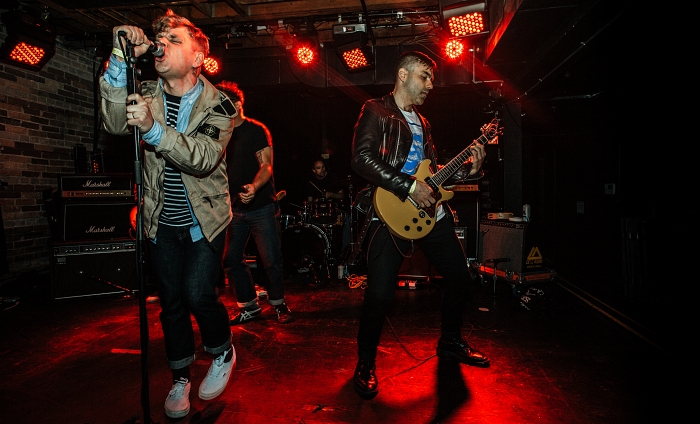
I just saw you a month or so and we talked a bit about your younger years when you were playing in hardcore and booking shows. What lessons did you learn from that part of your life that you’ve taken into the Spiritual Cramp experience?
This is so cliché but the aspect of learning how to do things yourself was so impactful to me. Learning how to play guitar, write songs, book shows, produce records, make art, network, promote yourself, create marketing materials - these are all skills people learn in college. I just learned them through punk music.
If you had to choose a hardcore band and/or record that changed the course of your life, what would it be and why?
Wow, this is a great question. I think my answer is Out Come the Wolves by Rancid. Maybe the Dead Kennedys' Fresh Fruit For Rotting Vegetables? Hard to pick.
***
Spiritual Cramp is available now via Blue Grape Music (vinyl/digital).
Hit the Spiritual Cramp Linktree up to find all of their social media pages.
Tour dates:
Jan. 31 - Phoenix, AZ @ The Rebel Lounge
Feb. 2 - Denton, TX @Rubber Gloves Rehearsal Studio
Feb. 3 - Austin, TX @Mohawk Austin
Feb. 4 - Houston, TX @ House of Blues Houston
Feb. 6 - Nashville, TN @ The Basement East
Feb. 7 - Atlanta, GA @ The Masquerade
Feb. 8 - Tampa, FL @ Crowbar
Feb. 9 - Miami, FL @ Gramps
Feb. 10 - Tallahassee, FL @ 926 Bar & Grill
Feb. 12 - Raleigh, NC @ Kings
Feb. 13 - Washington, DC @ The Atlantis
Feb. 14 - Philadelphia, PA @ First Unitarian Church
Feb. 15 - New York, NY @ Bowery Ballroom
Feb. 16 - Cambridge, MA @ The Sinclair
Feb. 17 - Montreal, QC @ Foufounes Électriques
Feb. 18 - Nepean, ON @ Brass Monkey
Feb. 20 - Toronto, ON @ Velvet Underground
Feb. 21 - New Kensington, PA @ Preserving Underground
Feb. 22 - Clinton Township, MI @ Edgemen Screenprinting
Feb. 23 - Chicago, IL @ Bottom Lounge
Feb. 24 - Minneapolis, MN @ 7th St Entry
Feb. 25 - Kansas City, MO @ RecordBar
Feb. 26 - Denver, CO @ Marquis Theater
Feb. 28 - Salt Lake City, UT @ Kilby Court
Feb. 29 - Henderson, NV @ Eagle Aerie Hall
Mar. 2 - Santa Cruz, CA @ The Catalyst
Mar. 3 - San Francisco, CA @ Rickshaw Stop
Mar. 5 - Sacramento, CA @ The Starlet Room
Mar. 7 - Portland, OR @ Polaris Hall
Mar. 8 - Vancouver, BC @ Rickshaw Theatre
Mar. 9 - Seattle, WA @ Neumos
Apr. 28 - Riverside, CA @ Riverside Municipal Auditorium
***
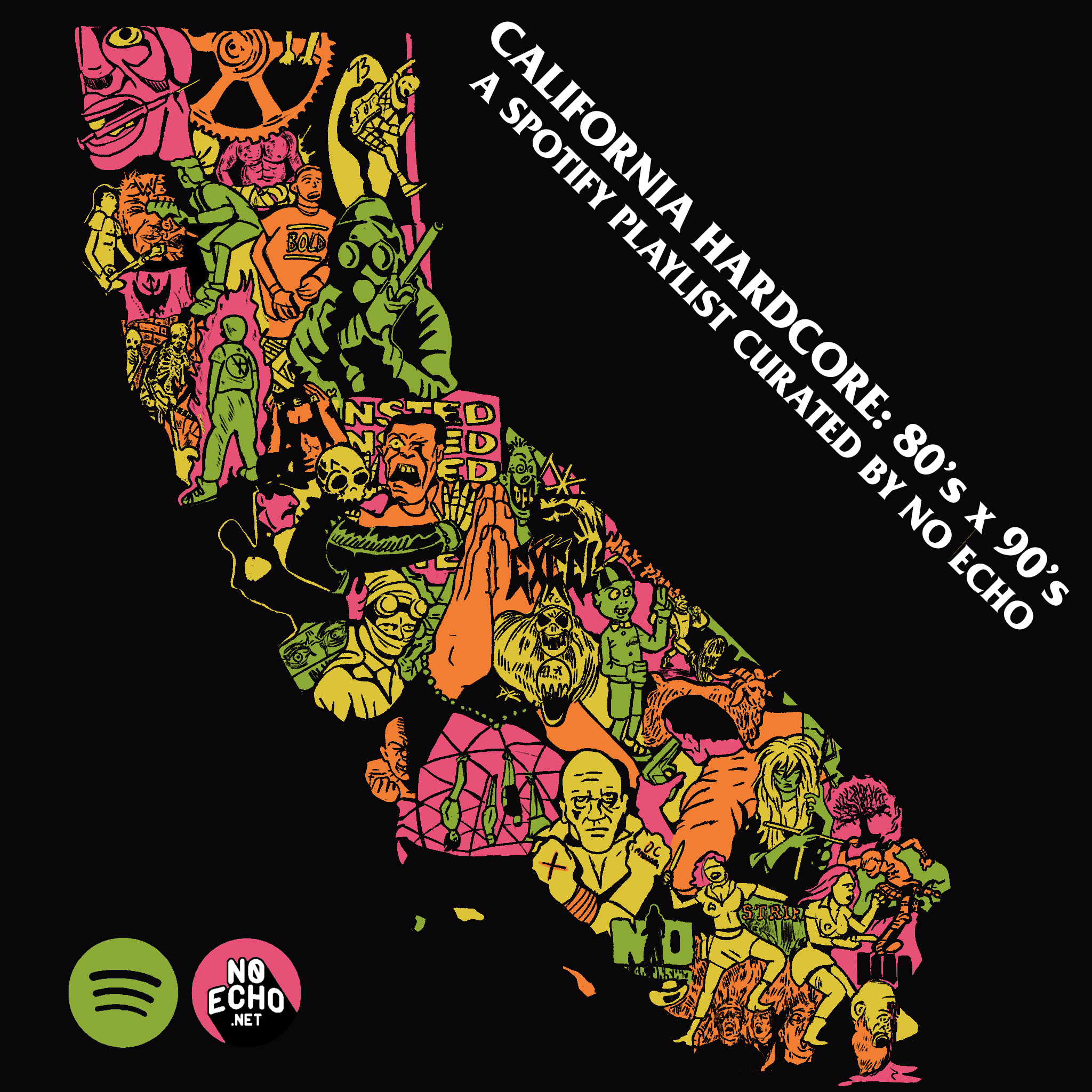
Tagged: spiritual cramp

